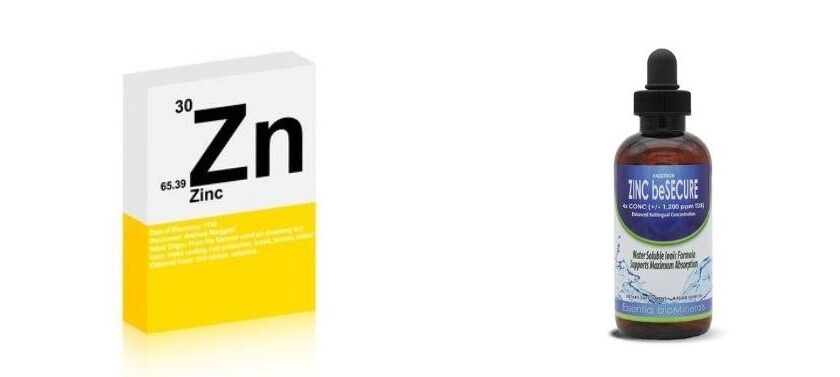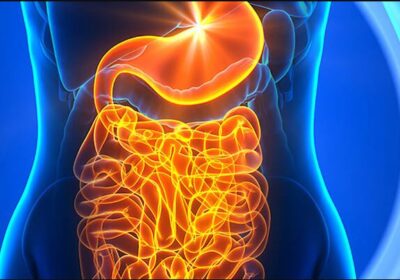It’s not just a question of asking ‘Is zinc important for fertility?’
Zinc is vital to ALL human bodily processes. (Just for starters, zinc is a ‘helper’ for over 100 enzymes).
A joke when I was studying nutrition, many years ago, was that if you didn’t know the answer to any question about a mineral essential for a function, just answer zinc – you’d almost certainly be right.
So where does zinc fit in with fertility?
Trying For a Baby? – Pre-pregnancy planning
If you’re yearning for a baby, and distraught that ‘nothing is happening’, you don’t actually want to read an encyclopaedia to learn if zinc is important for fertility.
Maybe you just want to know the simplest things to try that can improve your chances of pregnancy?
Take encouragement from the fact that while you are waiting (pre-pregnancy planning) there is much you can do to improve your health and the chances of a successful pregnancy.
The fast answer is: When planning a pregnancy, both partners may find it helpful to use a naturally sourced supplement such as: ZINC BeSECURE – Click HERE
For a little more explanation, I hope these pointers will explain exactly why zinc is important for fertility in both male and females.
Acknowledgement / Reference: This material is adapted from the book “Trace Elements and Other Essential Nutrients” by Dr David L Watts.
If you’re looking for ways to increase zinc in your diet, here are some ideas.
Sources of Zinc in Your Diet
The Recommended Dietary Allowance (RDA) for adults is 8 mg/ day for women and 11 mg/day for men.
Source: ncbi.nlm.nih.gov
Good food sources of zinc include red meat, seafood (especially oysters), offal, Brewer’s yeast, whole-grains, pulses, eggs and cheese. Lower supplies of zinc are available in eggs and milk.
Vegetarian sources of zinc are: seeds, nuts, legumes, soya and grains, although processing of food removes zinc from whole-grains.
However, a diet packed with foods high in zinc may not be the answer – especially if your zinc deficiency is relative to another mineral.
Furthermore, WebMD reports that in people with moderate to severe deficiency, recommendations suggest taking four to five times the RDA for 6 months.
But first, let’s look in more detail at the question…..
Is Zinc Important For Fertility?
The importance of zinc for fertility is backed up by Healthline.com which states
“Getting enough zinc is one of the cornerstones of male fertility. Observational studies show that low zinc status or deficiency is associated with low testosterone levels, poor sperm quality, and an increased risk of male infertility”.
Source: Healthline.com With references to studies on PubMed Central – Highly respected database from the National Institutes of Health
If this article attempted to cover all the functions of zinc, we’d be here all day, so I’m restricting myself to…
Functions of Zinc Related to Fertility (male and female)
Does it come as a surprise that zinc is important in male infertility?
- Zinc is necessary to switch on genes in response to hormone triggers, vital to growth, digestion, sexual maturity, sperm health. Many cases of infertility may be resolved simply by zinc supplementation.
- Males are at particular risk of zinc deficiency as each ejaculate contains 5mg of zinc – one third of the Recommended Daily Allowance (which many complementary therapists believe is inadequate for optimum health).
- Zinc deficiency when preparing for pregnancy can lead to foetal growth retardation, anorexia, loss of hair, seborrhoea, apathy, defects in eyes, kidneys, brain and bones, heart problems and small eyes.
Some people may suggest that before supplementing zinc you should take a test for zinc levels, and depending on your budget, that may be an option you could discuss with your doctor.
Otherwise….
Possible Signs of Zinc Deficiency Are:
- Poor skin condition / acne
- Poor hair condition (hair will suffer early on as zinc is diverted to more essential bodily functions)
- Stretch marks (e.g. after pregnancy)
- White spots on fingernails (more often caused by excess copper, a zinc antagonist)
- Increased susceptibility to infections
- Reduced sense of smell or taste, which can lead to poor appetite and in extreme cases anorexia
- Slow wound healing
Absolute Zinc Deficiency…
…may be caused either by an unsatisfied increased need for zinc or an increased zinc loss, and may be associated with:
- Menstrual irregularities / PMS
- Sterility / infertility
- Suppressed immune system
- Poor diet – including highly processed foods
- Stress
- Illness
- Increased thyroid or adrenal activity
- Toxic mineral accumulation
- Certain medications (but NEVER adjust dosages of medication recommended by your qualified medical practitioner)
Relative Zinc Deficiency…
…may develop if levels of zinc are lowered by other minerals such as copper or cadmium, and may be and associated with:
- Candida
- Depression (including post-partum depression commonly known as “baby-blues”)
- Eclampsia
- Fungal infections
- PMS
- Repeated infections
- Underactive adrenal or thyroid glands
- Overactive parathyroid gland
- Imbalance with copper or cadmium, or any of 10 other minerals found to be antagonistic to zinc – i.e. they prevent your body absorbing or utilizing zinc
Cautions
- This is not medical advice, consider discussing with medically qualified health practitioner. You may wish to ask them to run a test to check your mineral levels and ratios.
- Zinc deficiency may not be occurring just because you don’t include enough zinc in your diet or supplement program; other factors may be lowering your body’s stores of zinc from increased need for zinc or preventing absorption.
- Infertility problems may not be as simple as saying I must have some zinc supplements this month! First of all, it may take 12 weeks to see any improvement. But taking too much zinc over a long period of time (greater than 6 months) can lead to dangerous deficiencies of other minerals – particularly copper, which is essential for other bodily functions.
- If you are pregnant or nursing or under a doctor’s care, consult with your medically qualified healthcare practitioner before taking a supplement.
Why Use a Sublingual Zinc Supplement?
Using a zinc supplement under the tongue can be more effective because it leads to faster absorption and bypass gastric acids that could destroy it if swallowed.
When planning a pregnancy, both partners may find it helpful to use ZINC BeSECURE – Click HERE.




